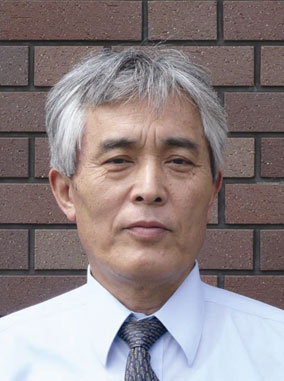The fourth IASTED Asian Conference on
Power and Energy Systems
AsiaPES 2010
Innovative Smart Grid Technologies for Sustainable Power and Energy Systems
November 24 – 26, 2010
Phuket, Thailand
SPECIAL SESSION ORGANIZER
Transient analysis in a power system
Abstract
Transient over-voltage is one of main causes for unscheduled interruption in power transmission and distribution systems including a smart grid. A surge over-voltage due to lightning and switching operation results in damages in an electrical power system and often leads to power outages. Predictive calculations of over-voltages generated by the lightning and the switching operation in the transmission and distribution systems are most essential for an economical insulation design and a reliable operation of the transmission and distribution systems.For the last 40 years, a circuit-theory based simulation tool such as the EMTP has been used to predict transient over-voltages in the world. Recently, the numerical electromagnetic analysis (NEA) method is becoming one of the most promising approaches to solve transient phenomena which can be solved, with great difficulty, by the existing circuit-theory based simulation tools. The circuit-theory based approach cannot solve a transient involving non-TEM mode propagation, such as a transient across an archon and a wavefront transient at a transmission tower due to lightning. Also, the circuit-theory based approach has difficulty solving a transient in a complex medium, such as a transient on a grounding electrode and that on a semi-conducting layer of a cable. Furthermore, the circuit-theory approach cannot be applied if circuit parameters are not known. The NEA can solve such problems because the NEA calculates Maxwell’s equation directly. However, the NEA requires a large amount of computer resources, and the accuracy is very much dependent on the cell size, the time step and the analytical space of the simulation.
This special session focuses on an analysis of transient over-voltages based on a conventional method and/or an innovative method.
Biography of the Special Session Organizer

Prof. Akihiro Ametani was born on February 14, 1944. He received the Ph.D. degree from University of Manchester Institute of Science and Technology (UMIST), Manchester, U.K., in 1973. He was with UMIST from 1971 to 1974, and Bonneville Power Administration to develop EMTP for summer from 1976 to 1981. He has been a Professor at Doshisha University since 1985 and was a Professor at the Catholic University of Leuven, Belgium in 1988. He was the Director of the Institute of Science and Engineering from 1996 to 1998 and Dean of Library and Computer/Information Center from 1998 to 2001. He was the Vice-President of the IEE Japan in 2003. Dr. Ametani is a Chartered Engineer in the U.K., a Distinguished Member of CIGRE, a Fellow of IET, and a Life Fellow of IEEE. He was awarded a D.Sc.(higher degree in UK) from the University of Manchester in 2010.
Submissions
Please email all submissions to [email protected] by September 1, 2010. Authors MUST include their full contact information in the email.













